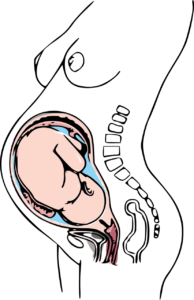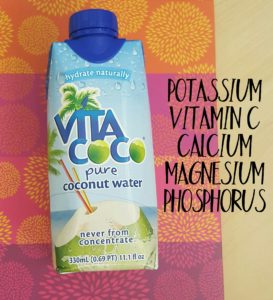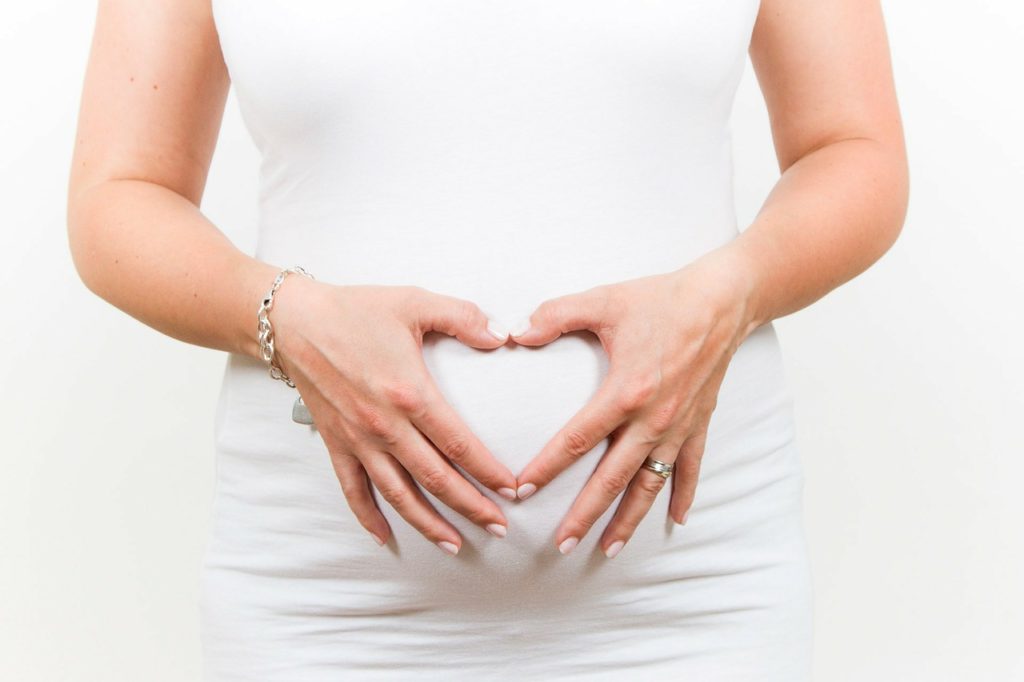Functional Medicine, Nutrition, Pregnancy
Pregnancy Dehydration What To Look For And How To Prevent It
When I was around 15 weeks pregnant with my first baby I became very dizzy, nauseated and fatigued. This was AFTER the morning sickness had subsided. I was fortunate to have only had morning sickness until about 14 weeks with all three of my babies. At the time I thought maybe it was morning sickness returning with a vengeance. This being my first baby, every bump in the road was new and unknown but this time it felt different. The light-headedness and feeling like I was going to pass out when I stood up or walked upstairs was super scary. I was worried something might be wrong with the baby so my husband and I headed in to the Doctor.
After a long night at Urgent Care and multiple tests, I learned that dehydration was the cause of my issues. I was shocked because having been a fitness and nutrition professional I should know better, right? Welcome to the world of mommy hood – a learning adventure on the daily!
Let’s look at what it means to be dehydrated. Dehydration is simply the result of your body losing more water than it is taking in. It seems like a no-brainer, just drink more water. However, dehydration is more common than you would think.
According to the Mayo Clinic:
Symptoms
Mild to moderate dehydration is likely to cause:
- Dry, sticky mouth
- Sleepiness or tiredness — children are likely to be less active than usual
- Thirst
- Decreased urine output
- No wet diapers for three hours for infants
- Few or no tears when crying
- Dry skin
- Headache
- Constipation
- Dizziness or light-headedness
Severe dehydration, a medical emergency, can cause:
- Extreme thirst
- Extreme fussiness or sleepiness in infants and children; irritability and confusion in adults
- Very dry mouth, skin and mucous membranes
- Little or no urination — any urine that is produced will be darker than normal
- Sunken eyes
- Shriveled and dry skin that lacks elasticity and doesn’t “bounce back” when pinched into a fold (Uh, we definitely do not want this!)
- In infants, sunken fontanelles — the soft spots on the top of a baby’s head
- Low blood pressure
- Rapid heartbeat
- Rapid breathing
- No tears when crying
- Fever
- In the most serious cases, delirium or unconsciousness
So how much water do we REALLY need? Still the ol’ 8 glasses a day?
After reading numerous studies on this, my recommendation is to keep to a daily water intake of 1/2 to ALL of one’s own bodyweight. So a 160 pound person should drink 80-160 ounces of water EVERY day.
Take a minute to calculate that for yourself. For the next few days actually measure out how much water you are drinking. Are you hitting the recommendation? Or are you dehydrated mommy? Keep in mind – you do get water from some of the foods you eat and other consumed beverages, but just for the sake of keeping it interesting, count only the water you drink for those few days.
In addition to those scary signs and symptoms in non-pregnant women, pregnancy brings a whole new need of proper hydration with it. Inadequate fluid intake during pregnancy can lead to serious pregnancy complications including:
- Neural tube defects
- low amniotic fluid
- premature labor
- birth defects
Why do we need extra water for our growing bumps?
There are significant changes in blood volume. These changes begin as soon as you see that little “+” sign on the stick. Total blood volume, plasma volume, and red blood cell mass increase to deliver oxygen to your growing baby (amongst other things). The total blood volume increase varies depending on the pregnant mom, but the average is about 45%. Think about that for a moment. Your blood volume will increase almost 50%! This means you need to increase your consumption of water significantly to keep up with what your body needs to produce that blood.
See that fluid filled sac around your baby? This amniotic sac is filled with mostly, you guessed it, water! The more hydrated you are, the better cushion you are providing your baby.

Water also helps you digest. When you are pregnant things start to slow down. This change in bowel habits is beneficial to your baby because the longer the food takes to digest, the more nutrients can be extracted and provided to your little one. However, constipation is not pretty. I can also tell you that unfortunately, it does not end until a few weeks after you delivery baby. You can add a stool softener to help with this, but staying hydrated is a key element to helping with constipation.
Water also helps to prevent hemorrhoids, urinary infections, and excessive swelling.
The Institute of Medicine recommends that pregnant women get about 10 cups of fluids daily. How much you need really depends on your activity level, your size, the weather, and whether or not you are keeping your food down or vomiting every hour. For me personally, 10 cups per day was not enough. I am very active and stayed active throughout all three of my pregnancies so this contributed to the increased need. You have to reflect on how you feel. If you start to show signs of any symptoms of dehydration, immediately drink 2 large glasses of water. If that does not help, call your doctor.
Tips to Stay Hydrated
When you wake up have a large glass of water first thing. If plain old water gets boring, add some natural flavor by incorporating fruit, vegetables, and herbs.
My favs:
- Lemon
- Raspberry & thyme
- Cucumber
- Pineapple & mint.
Even minor dehydration can make you feel sluggish and tired. Getting up with baby in the night is already enough to suck all the energy out of you, so make sure dehydration is not adding to the exhaustion. Drink up when you wake up!
Keep a large water bottle with you at all times. Refill the water bottle at least 4-5 times per day.
Feel like you need something more?
Try coconut water! I am a huge fan of coconut water because not only is it delicious, it contains potassium and calcium, key players in
muscle and nerve function (hello pregnancy muscle cramps)! Low potassium in pregnancy can cause you to feel fatigued (even more than you already are) and can cause constipation, something we definitely do not need more of – especially in the first and third trimester! Remember coconut water does contain sugar which can be harmful in excess, however consumed in moderation (limit one 12oz. and below/day), coconut water is a great source of hydration, flavor, and nutrients.
My very favorite coconut water is Vita CoCo. I order it on Amazon here: Vita Coco Coconut Water. I have purchased it at numerous grocery stores and have not found it cheaper than Amazon. Plus if you stock up on the 12 pack, you will not have to worry about running to the store every few days for more.
What you want to make sure to avoid is excess sugar and any artificial sweeteners. I do not consume or allow my kids to consume artificial sweeteners (another blog post someday). The only exception I make to this is Stevia, but only Stevia that does not contain other artificial sweeteners (check the labels, many do). Sweeten your beverages with REAL SUGAR from fruit and vegetables.
Take Away
Water is important to everyone. Pregnancy and breastfeeding bring about needs that are much greater when it comes to hydration. Do not let yourself get behind in hydrating your body during these phases of mommyhood. Water is essential to you and to your growing fetus. Staying hydrated will keep you feeling great, fuel your body, and protect your little one.

